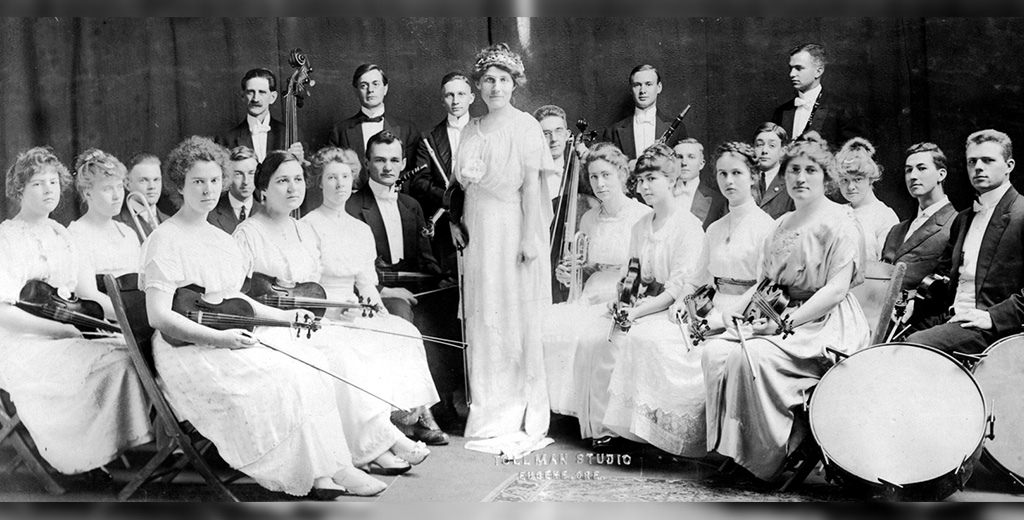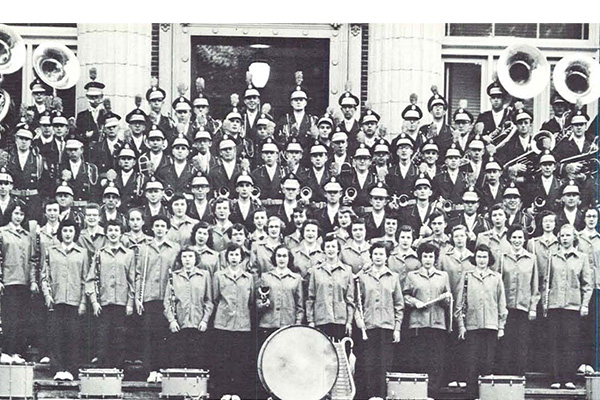
UO Orchestra 1914 / Oregon Digital
UO History 101: School of Music and Dance
With 41 programs and over 40 student ensembles, the School of Music and Dance (SOMD) has made a major impact on the Eugene music and arts scene.

University Band 1954 / Oregana 1954
The SOMD began in 1886, ten years after the University of Oregon was founded, as the Department of Music, and later as the School of Music in 1900.
An excerpt from the 1954 Oregana yearbook says that the School of Music was an off-campus conservatory made up of classes, practices, concerts, and recitals. Students in university ensembles, like University Symphony Orchestra, held performances around the state.
In 1991, the school was joined by dance faculty, which had been offering classes since 1911 and a dance major since 1959. The School of Music officially became the School of Music and Dance in 2005.
Something Old | Something New: Opera & Musical Theater Scenes Program
With over 500 undergraduates and 900 total music and dance students, SOMD is a thriving hub of live performances and culture. It hosts more than 300 performances each year in Eugene, and many more throughout the country and the world. It is home to the Community Music Institute, the Berwick Academy for Historically Informed Performance, the only Dance BFA in the country to give equal weight to European and African Diaspora forms, the lauded ChamberMusic@Beall series, and the Grammy-winning Oregon Bach Festival.
UO Dance in Concert 2022 Livestream
Some of the SOMD’s notable programs include its undergraduate popular music program, BFA dance program, music education master’s program, and music theory doctoral program. The SOMD offers 11 undergraduate majors and four minors, nine masters programs, and six doctoral programs.
To learn more about the School of Music and Dance, visit musicanddance.uoregon.edu and check out the calendar for opportunities to attend events and performances.
-By Peyton Hall, UO Alumni Association Student Associate

